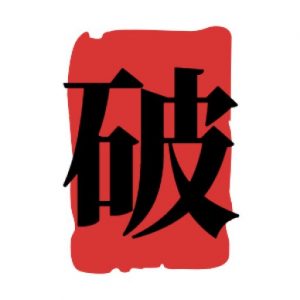practice后面动词用法 practice后面动词加什么
语言学习的关键在于掌握单词,它们构成了我们交流的基石。在今天的文章中,我将带大家深入探讨《外研版新七上英语Unit 2》的重点单词及其用法,希望能为你的学习之旅增添乐趣!
electric 形容词,意指“电的”或“电动的”。名词形式为electricity,表示电力。举例:Electric cars are becoming more popular.
guitar 吉他,作为名词使用。在提到乐器时,我们通常在其前面加上the,如:play the guitar 意为弹吉他。
fun 指乐趣,是不可数名词。用法有:1) have fun (in) doing sth. 表示做某事很开心,如:They have fun playing football. 2) It’s (great) fun to do sth. 意为做某事非常有趣,如:It’s great fun to learn to play the guitar. 3) have fun with sb. 亦可指和某人一起玩乐,如:She had fun with us.
sound 表示声音,既可以是可数名词也可以是不可数名词。通常,当指代某个特定的声音时使用复数形式,当是引起注意的声音时使用单数形式。例如:Right at the moment, the sound of Grandpa’s erhu cuts in.
different 形容词,表示“不同的”。用法:1) be different from 表示与……不同,例如:My work is different from hers. 2) a different kind of... 表示一种不同类型的……例如:Erhu is a different kind of music.
suddenly 副词,意为“突然地”。通常修饰动词,如:He suddenly speaks very fast。sudden 则为形容词,表示“突如其来的”,例如:The sudden heavy rain interested us.
practice 作为名词时表示“练习”,例如:Practice makes perfect。作为动词时表示“进行练习”,如:I practice speaking English every morning.
everybody 代词,指“每个人”。当它作为主语时,谓语动词需用三单形式,例如:Everybody is here today.
skate 动词,意为“滑冰”。常用搭配是go skating,例如:They often go skating in winter.
volleyball 名词,指“排球”或“排球运动”。例如:We play volleyball after school every Friday.
photography 名词,表示“摄影”,而photograph 则为“照片”。
tradition 指“传统”,名词。例如:中国春节期间吃饺子是中国的传统。形容词traditional 用于描述传统的事物,如:They are traditional art lovers.
knowledge 名词,表示“知识”或“学问”,例如:Many hobbies can give us knowledge.
nature 名词,表示“自然”,例如:People watch wild birds in nature。形容词natural 表示“自然的”,如:It’s natural to forget the new words.
awake 形容词,表示“醒着的”。用法包括:1) 常用于be作表语,如:Oliver was awake at 3 o’clock in the morning。2) 可作定语修饰名词,如:He was the only student awake.
midnight 名词,意为“午夜”。例如:The boy played games at midnight yesterday。
almost 副词,表示“几乎”或“差不多”。用法:1) 用于动词之后,如:He almost gets up at five o’clock every day。2) 修饰形容词、副词、名词时,通常位于被修饰词前,例如:It’s almost late again。3) 可用于否定词之前,如:Almost no one came here。
bit 副词,表示“一点儿”或“稍微”。用法包括:1) 修饰动词、副词和形容词,如:She felt a bit happy。2) 修饰比较级,如:I’m a bit fatter than Lucy。3) a bit of + 不可数名词,如:Drink a bit of water, please。
lonely 形容词,意为“孤单的”或“寂寞的”。它通常形容因缺少社交而产生的悲伤情绪,常用于feel后,如:The old man never felt lonely。它也可作定语修饰表示地点的名词,如:This is a lonely island。
shelf 名词,意为“架子”或“隔板”。其复数形式为shelves。用法如:These books are on the shelf。
ending 名词,指“结局”或“结尾”。用法包括:at the ending of... 表示在……的结尾,例如:At the ending of the film, the mother found her child。

